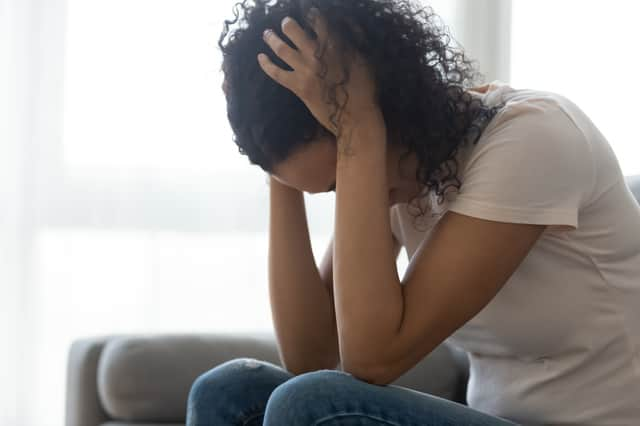A quarter of a million people missed out on mental health help during Covid pandemic, figures reveal


By Laura Andrew
Mental health referrals have fallen dramatically during the coronavirus pandemic with over a quarter of a million fewer people accessing talking therapy for common conditions like depression or anxiety.
The number of referrals to the NHS improving access to psychological therapies (IAPT) programme between February and November 2020 dropped by almost a fifth (18.9%) across England compared to the same period last year.
Advertisement
Hide AdAdvertisement
Hide AdFigures from NHS Digital show 268,218 fewer people accessed talking therapy than the year before.
In 2019 almost 1.42 million people accessed these services but in 2020 that fell to just 1.15 million.
Leila Reyburn, policy and campaigns manager at mental health charity Mind said: “The coronavirus pandemic is affecting all of our lives, especially those of us living with mental health problems.
“We’re concerned that without the right support more people may reach a crisis point for their mental health, requiring more expensive and intensive treatment, further down the line."
Advertisement
Hide AdAdvertisement
Hide AdThe worst affected area in England is NHS Tees Valley Clinical Commissioning Group (CCG).
Referrals almost halved between February and November 2020, dropping by 48.6 per cent
That means 11,260 fewer people were seen in that time frame than the year before.
The second hardest hit area is NHS Herts Valleys CCG.
Referrals have been down 47.2 per cent year on year, with 7,495 fewer people referred.
Loading....
Advertisement
Hide AdAdvertisement
Hide AdMs Reyburn said: “More needs to be done to understand this drop, but we’re concerned too many people who could benefit from therapy are not getting the help they need, and a future increase in demand could result in lengthy and varied waiting times, depending where you live.
“What works will vary from person to person, so people need to be given a choice of treatment tailored to meet their needs – this includes making sure people are offered culturally appropriate, trauma and gender informed support.
“To do this mental health services need to be properly funded and resourced so they can continue to adapt and be flexible and make sure people can get treatment in a way that works for them – whether face-to-face, over the phone, or online.”
The area least affected according to the new data is NHS Bristol, North Somerset and South Gloucestershire, which saw a significant rise of 14.3 per cent.
It was not alone as three CCGs saw a rise in 2020.
Advertisement
Hide AdAdvertisement
Hide Ad“Some people will benefit from receiving therapy digitally, but others worry about issues like connectivity, building relationships and confidentiality,” Ms Reyburn continued.
“Services need to understand that, even for those who are not strictly digitally excluded, non-face-to-face support may not work for them.
“This is particularly important for young people. In Mind’s survey of 16,000 people, young people were nearly twice as likely to say that they feel uncomfortable using phone or video call technology to access mental health support.
"Almost a third of young people who accessed or tried to access support said that the technology was a barrier to doing so, in comparison to 17 per cent of adults.
Advertisement
Hide AdAdvertisement
Hide Ad“The Government and NHS needs to make sure that people know mental health services are still open, and they can access support if they need it.”
A spokesperson for the NHS said: “The NHS has been open to people with concerns about their mental health throughout the pandemic, including through talking therapy sessions, which the public can self-refer onto for both face-to-face and online sessions and referrals are now rapidly increasing.
“It has been a tough year, but the NHS is here to help, so anyone who is struggling should come forward for the help they need.”